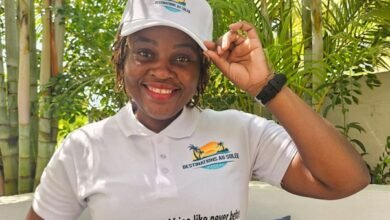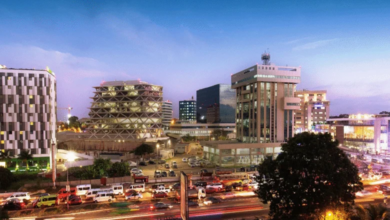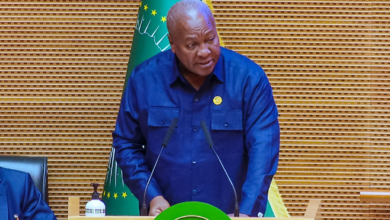Two months before COP27 in Sharm El Sheikh, the Global Centre on Adaptation (CGA) held a summit in Rotterdam on financing adaptation to climate change in Africa, estimated at 25 billion dollars by 2025. However, the African Heads of State have especially denounced the absence of leaders of industrialized countries which are the most polluting.
By Mérième Alaoui
Lire la suite : Climate change: Who will fund the billions needed by Africa?“I cannot fail to note with bitterness the absence of the leaders of the industrialized world”, Macky Sall, president in office of the African Union and president of Senegal, said grimly at the opening of the summit.
« Since they are the main polluters of this planet, they are the ones who must finance adaptation, added the Senegalese President. A strong statement endorsed, among others, by Félix Tshisekedi, President of the Democratic Republic of Congo (DRC): « I would also like to deplore the absence of leaders of industrialized nations and representatives of the private sector. Two months before the COP27, scheduled for November in Sharm El Sheikh (Egypt), African leaders met to discuss financing adaptation in Africa. Namely, concrete measures to reduce the exposure and vulnerability of countries and populations to the effects of climate change.

The situation is alarmingly unfair and the issue is crucial for Africans. Although they represent only about 2 to 3% of global greenhouse gas emissions, they suffer the consequences disproportionately. « Of the 10 countries most vulnerable to climate change, 9 are on the African continent, » said former UN Secretary-General Ban Ki-moon.
According to the World Meteorological Organization’s (WMO) State of the Climate in Africa 2021 report, floods, droughts and lack of clean water affect an estimated 250 million people and could displace 700 million Africans by 2030.
» It is more expensive to not respond to climate than it is to respond »
According to figures from the African Development Bank (AfDB), Africa needs between $1.3 trillion and $1.6 trillion in global financing between 2020 and 2030, as detailed in its African Economic Outlook 2022 report. But in Rotterdam, the focus was on closing the most urgent gap of $25 billion by 2025. The AfDB has pledged to pay half of this amount. But who will finance the other half? In the final communiqué of the Rotterdam summit, several European countries (via representatives or by video) announced new contributions for a total of $55 million: The United Kingdom with $23 million, Norway with $15 million, France pledged $10 million and Denmark $7 million. The requirements are therefore far from being met today. Yet the global economic and geopolitical context increases the seriousness. « The long-anticipated climate emergency is here and it amplifies the global food, energy and budget crisis caused by COVID-19 and the war in Ukraine, » argued President Macky Sall.
To try to counter this worse-case scenario, concrete solutions have been put forward. The report of the World Meteorological Organization (WMO) formulates a number of urgent recommendations such as the improvement of the early warning system; the implementation of simple text or voice messages, for example, to inform farmers on the best time to plant, irrigate … But above all, to warn them of possible extreme weather conditions. These projections should stimulate the private sector, as they enable savings and generate jobs. At present, only 40% of the African population has access to these warning systems. Without making more concrete announcements, as Washington prepares the summit of US/Africa leaders in December, US climate envoy, John Kerry, then in a meeting in Egypt, said “it is more expensive to not respond to climate than it is to respond,” calling for finding resources through the « private sector » to « finance the ecological transition ». After the COP26 in Glasgow that fell short of expectations, the COP27, to be held this time on the African continent, generates much hope among the Heads of State who should seize this opportunity to be more aggressive.






